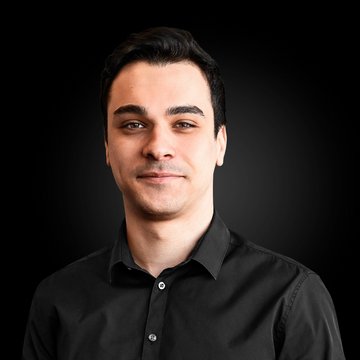Laser Optics
LASER COMPONENTS Germany GmbH
Our first in-house production facility was a coating machine for hard dielectric coatings which was put into operation in 1986. Soon the name LASER COMPONENTS was ranked among the top suppliers of laser optics and laser rods. Many large laser technology manufacturers count on our optics, which cover the complete spectral range from 248 nm (UV) to 3.0 µm (MIR). Our specialties include the manufacture of glass parabolic mirrors for thin disk lasers, adaptive optics, and Gaussian mirrors.
Top LIDT
Comparative measurements by various renowned institutes and laser manufacturers prove that thanks to our optimized manufacturing processes, we achieve the highest possible laser induced damage thresholds (LIDT).
Technologies
In our custom-made high-vacuum chambers with their electron beam guns, we coat substrates supplied with diameters ranging from 4 to 390 mm. The department currently uses six coaters – including two with ion beam sputtering technology, which allows us to manufacture the dense layers required for next-generation lasers.
Upon request, we will complete any rush order within 24 hours.
Coating technologies
LASER COMPONENTS


PVD COATING
248 nm - 2.2 µm
The E-beam process, also referred to as the PVD process (Physical Vapour Deposition), is the most commonly used coating technology in the field of laser technology. Due to their fast layer growth and flexible capacity, coatings can be produced with high damage thresholds at reasonable prices.
Features
With this process it is possible to produce cw/fs coatings in addition to various high-power coatings. This is achieved through the deposition of different materials.
The coating modifications can affect the bandwidth, dispersion behavior, scatter losses, and damage threshold.
IAD Coating
248 nm - 3.0 µm
For applications which use high levels of power and require a low wavelength drift, high mechanical resilience, or low dispersion layers, we recommend applying the IAD process (ion-assisted deposition). Moreover, IAD coating has the advantage that it can be performed at low temperatures, which makes it possible for sensitive substrates or optical fibers to be coated.
IAD Sources
Depending on coating requirements, two different IAD sources are available at LASER COMPONENTS:
An ECR source (electron cyclotron resonance) predominantly delivers ions in the range of under 100 eV. Because of the relatively (to the cold cathode sources) low ion energy, the coatings produced with this source have a low remaining porosity. This allows high damage thresholds to be achieved, particularly in the nansosecond range.
Alternatively, a cold cathode source is available that provides energy in the range of up to 200 eV, through which extremely compact layers can be produced that completely avoid water retention. Layers of this kind are characterized by just a marginal thermal drift.
Online Monitoring System
In addition to layer thickness control through oscillating crystals and monochromatic optical detection, LASER COMPONENTS also has an optical broadband monitoring system available.
During the coating process, the entire visible spectrum is monitored and the layer thickness precision increased to over 0.1%. This makes the production of complex coating systems significantly easier.
In conjunction with the low drift layers of the IAD coating process, this monitoring system can expand the product spectrum and significantly increase the reliability of the coating process.
With its help we are able to coat high power laser optics in such a compact way that the water virtually has no chance of embedding itself. With process temperatures of less than 100°C it is also possible to equip fully assembled fibers, plastic lenses, and glued and assembled optics with a hard, laser-proof coating.




IBS Coating
248 nm - 3.0 µm
Ion beam sputtering (IBS) is an extremely precise and reproducible coating method. Unlike in any other coating technology, process parameters, such as application of energy, layer growth rate, and oxidation level, can be independently and exactly regulated. This leads to compact layers with the lowest possible wavelength drift.
Sputter Coating Process
In the sputtering method, noble gas ions are shot at the coating material. The impact of the ions disperses the material, which subsequently settles on the substrate to be coated.
Due to their extremely high kinetic energy the impacting particles are very mobile. This mobility aids in the filling of holes and the avoidance of any defects in the growing layer.
This ultimately leads to the formation of exceedingly smooth layers which are particularly homogeneous in their optical properties. Using this coating method several hundred layers may be placed on top of each other, creating optical coatings for selected requirements.
Characteristics
- Lowest scatter loss and very high reflection (R > 99.99 %)
- High packing density, no water retention, and thus extremely low temperature drifts
- Smooth surfaces with marginal roughness
- “Cold“ coating method and thus suitable for temperature and moisture-sensitive substrates, nonlinear or laser crystals and laser diodes
- Stable and reproducible process for complex layer designs such as, for example, in steep edge filters
LASER COMPONENTS France - Your competent partner for optical and optoelectronic components in France.
Welcome to LASER COMPONENTS S.A.S., your expert for photonics components. Each product in our wide range of detectors, laser diodes, laser modules, optics, fiber optics, and more is worth every Euro (€/EUR). Our customized solutions cover all conceivable areas of application: from sensor technology to medical technology. You can reach us here:
45 Bis Route des Gardes
92190 Meudon
France
Phone: +33 (0) 139 595 225
Email: serviceclient(at)

